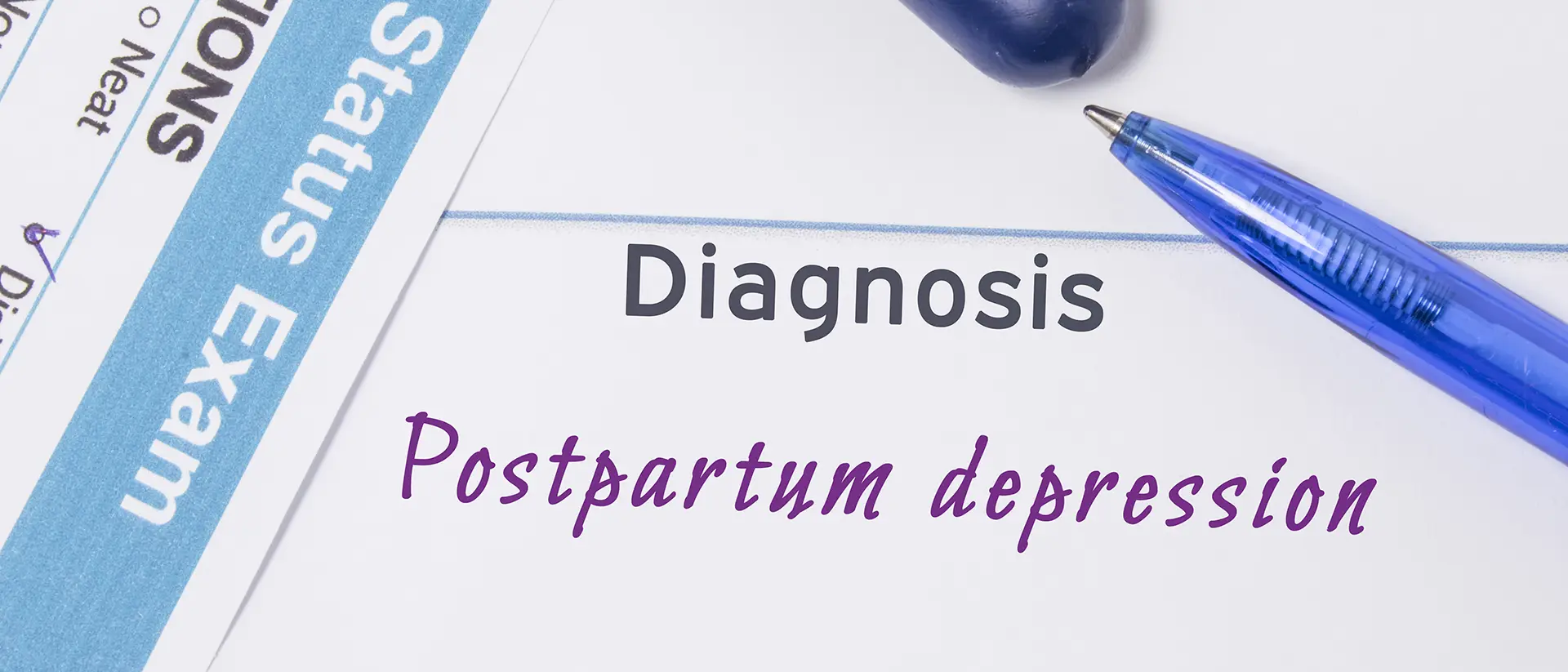
Around one in seven women develop postpartum depression (PPD), according to the National Institutes of Health. While those experiencing “baby blues” recover quickly, PPD tends to last longer and severely impairs a women's ability to return to normal function.
“Depression is one of the most common postpartum health challenges that women face, but from an organizational and managerial perspective, we don't really understand or know too much about how women who go through this critical experience reenter the workforce successfully,” says Allison Gabriel, the Thomas J. Howatt Chair in Management at Purdue’s Mitchell E. Daniels, Jr. School of Business and director of the university’s new Center for Working Well.
Gabriel addresses the issue in a paper for the Journal of Applied Psychology, “Sensemaking Through the Storm: How Postpartum Depression Shapes Personal Work–Family Narratives,” which she coauthored with Jamie Ladge from the D’Amore-McKim School of Business at Northeastern University and University of Exeter Business School, Laura Little from the University of Georgia’s Terry College of Business, Rebecca MacGowan from the University of Arkansas’s Sam E. Walton College of Business, and Elizabeth Stillwell from the London School of Economics and Political Science.
“We were interested in trying to understand how women who have been diagnosed with PPD reentered the workforce, and what that experience was like for them,” Gabriel says. “What kind of thoughts, emotions and feelings were they having before they reentered the workforce? Did they have any unforeseen challenges when they came back? Did they approach their work or their relationships and interactions with coworkers differently? And did they prioritize work and family differently than they did before they went through the experience of having PPD?”
To garner personal narratives on the topic, Gabriel and her coauthors conducted qualitative interviews with 41 women who had been diagnosed with PPD over the last five years. To help ensure they had a diverse sample, the researchers also partnered with subject-matter experts including Ovia Health — an organization that works with pregnant women and new mothers.
“Our interview process gave us a real range of experiences to draw from as we asked them questions about how having postpartum depression imposed on their sense of self, about who they were at work, who they were at home and who they were as a person,” Gabriel says.
Indeed, there are already a variety of challenges of having a child and reentering the workforce, Gabriel says. “Having postpartum depression creates what we term an ‘imposing identity’ that profoundly shifts how women think about the intersection of work and family,” she says. “It is a huge shock to women who may not have the full support at work or at home to navigate their symptoms, and creates a situation in which women must find ways to cope to create healthier lives for themselves at home, and then at work once they return postpartum.”
Prioritizing a mother’s reentry and mental health offers a clear way for organizations to support and retain women in the workforce. “It is crucial that supervisors and coworkers are informed about the challenges linked to motherhood and the potential stigma that working mothers with PPD face. Having awareness can help mothers feel more comfortable reaching out for support, and make sure that resources are provided to women about this challenge before they even go on parental leave,” Gabriel says.
Support can come through formal policies, including the availability of paid maternity leave, reduced work hours or flextime, support groups, or other work–family benefits. Other support takes the form of company-wide policies aimed at helping pregnant women, new mothers, or employees with mental health challenges — something crucial for women with PPD. Importantly, employers and managers also need to be aware of “antisupports” that minimize the symptoms and diagnosis of PPD and suggest that the women should carry on as normal.
Although PPD was a negative experience, the research findings also suggest that the imposing identity from the diagnosis helped women to develop resilience, leading to a reprioritization of themselves, their relationships and their work, and further allowing them to treat themselves and others with compassion.
“What we ended up seeing was that a lot of these women, after they went through postpartum depression, were able to seek counseling or therapy and came out of it on the other side,” Gabriel says. “They learned how to manage their work, family, and personal lives in ways that were more effective for them, that made them feel better as a person, as a worker and as a mother. And they used their experience to become beacons for others who are struggling at work. It’s a story about resilience, and finding strength to help others who may also be going through challenges at work.”
What Does This Mean for Working Well?
One in seven women experience postpartum depression (PPD), which severely impairs their ability to return to normal function and creates an imposing identity that profoundly shifts how they think about the intersection of work and family. Prioritizing a mother's reentry and mental health offers a clear way for organizations to support and retain women in the workforce. Support can come through formal policies, reduced work hours, support groups, and company-wide policies aimed at helping pregnant women, new mothers, or employees with mental health challenges. Employers and managers also need to be aware of the challenges linked to motherhood and minimize the symptoms and diagnosis of PPD. This can help mothers feel more comfortable reaching out for support and make sure resources are provided to women about this challenge before they even go on parental leave.
Media Contact: Allison Gabriel, Director, Purdue Center for Working Well, asgabriel@purdue.edu